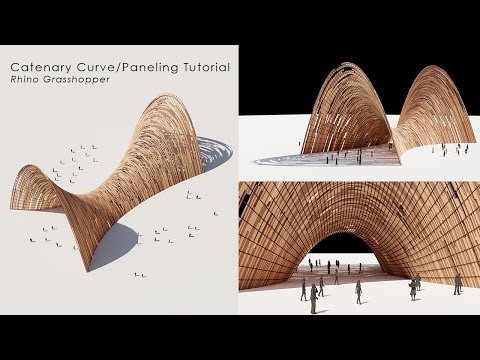nao iwanari architects translates the spatial fluidity of an aquarium into this house in japan
a house of undivided, wide open areas
When designing its newly completed house in Yokohama, Japanese practice Nao Iwanari Architects takes inspiration from the inside of an aquarium. The team notes that the aquarium necessarily reproduces the atmosphere of the ocean through its wide-open areas, cavernous holes, and the shady spaces beneath rocks and plants — the place is defined by a range of spatial properties all combined within a continuous, unseparated area. The inward-looking world of the aquarium opens only towards the luminous surface of the water overhead.
This urban dwelling, dubbed the Aquarium House, translates the imagined experience of the occupants of an aquarium into a work of residential architecture.
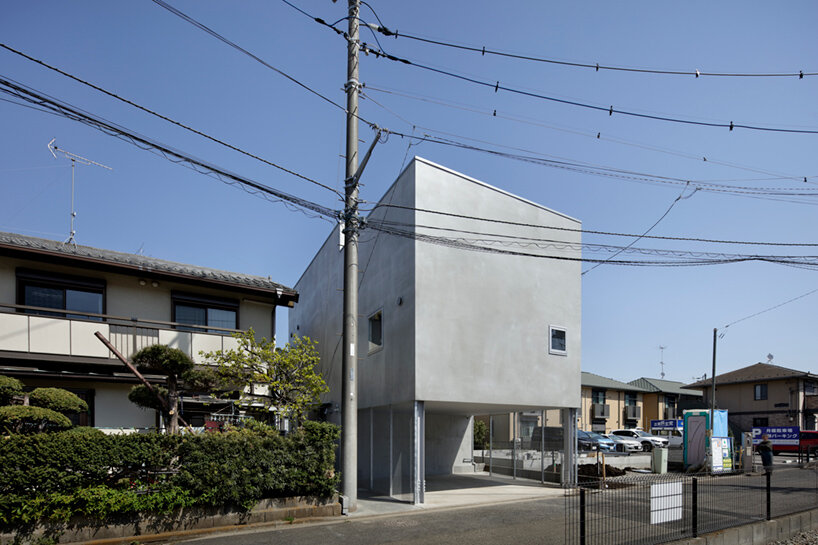 images © Satoshi Shigeta | @sgt_74
images © Satoshi Shigeta | @sgt_74
translating the qualities of an aquarium through architecture
The team at Nao Iwanari Architects (see more here) describes the spirit of its Aquarium House: ‘An urban dwelling that requires multiple layers to be established. If we can develop such a space as underwater, I thought it would be possible to create a spacious place to live without feeling cramped.
‘When you put yourself inside the actual building, it looks like underwater Spaces in each layer with different properties are connected without breaks, when I was invited by the light that shines from the top to the bottom and went up, it reaches a semi-external space surrounded by walls on all four sides and only the upper part is open.
‘The upper end of the wall opened above it is like the surface of the water looking up from the water. Feel like you are in the most open zone. It is a residential building that gets closer to the outside as it gets farther from the ground.’
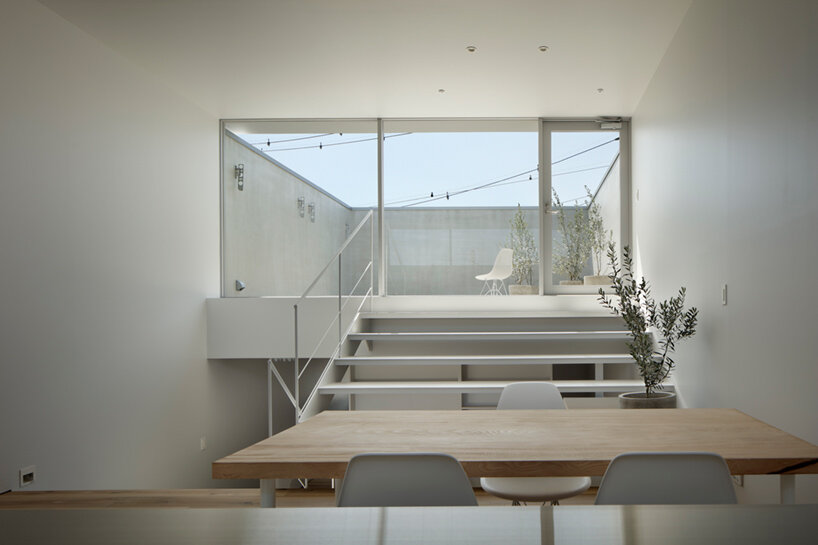
the dwelling opens overhead with a luminous zone
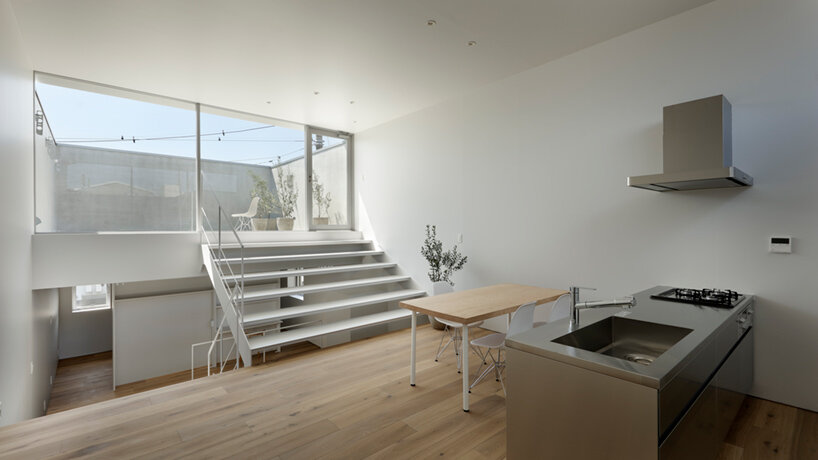
the spaces of the house are connected without breaks
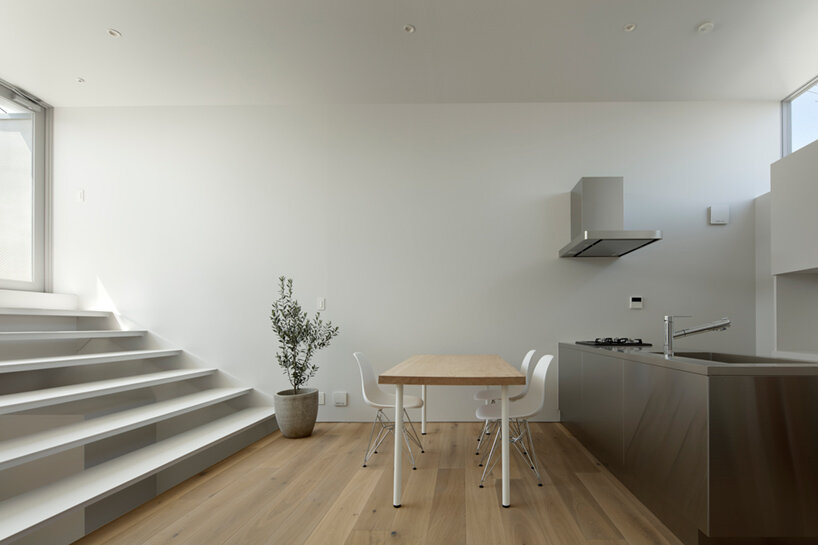
occupants move fluidly through the dwelling
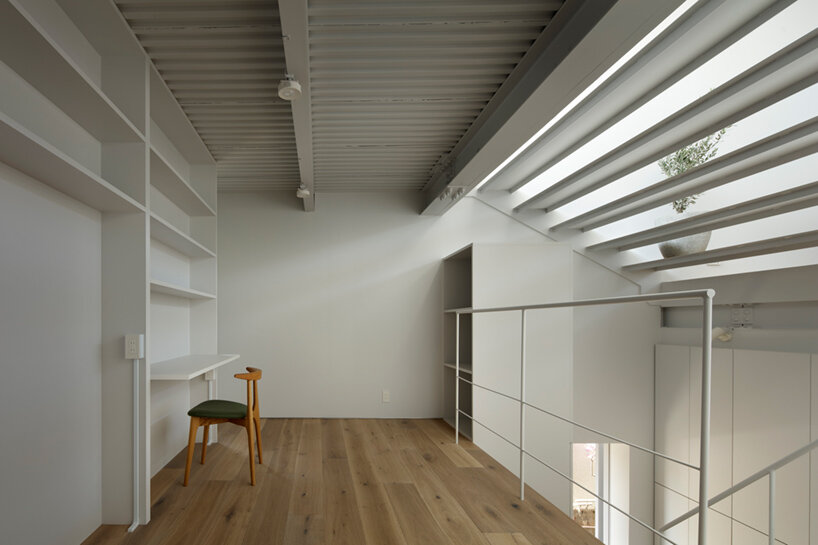 some areas recreate the shady zone beneath plants or rocks
some areas recreate the shady zone beneath plants or rocks

